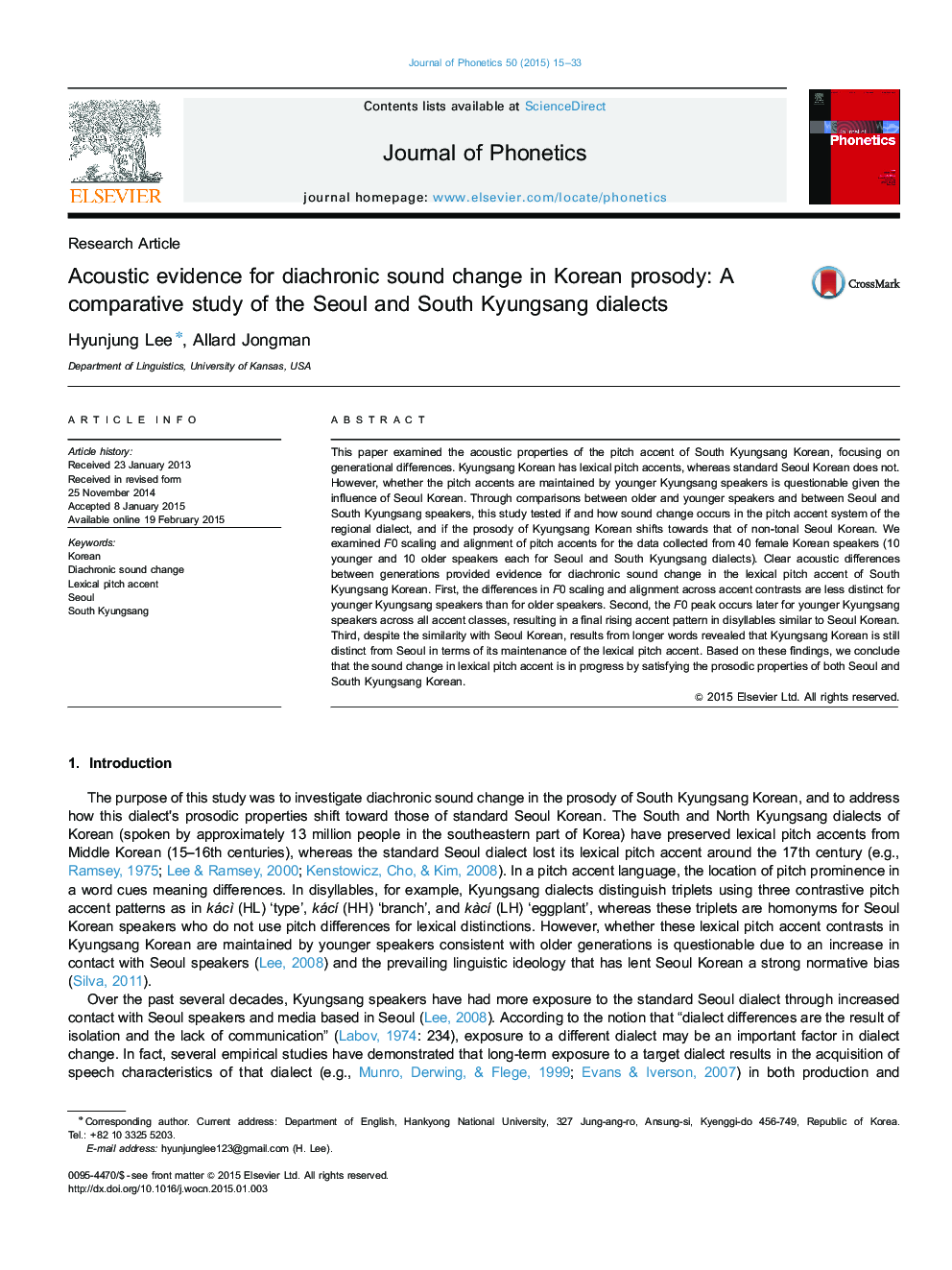| Article ID | Journal | Published Year | Pages | File Type |
|---|---|---|---|---|
| 1100680 | Journal of Phonetics | 2015 | 19 Pages |
•We tested generational differences in the pitch accents of South Kyungsang Korean.•We showed evidence for diachronic sound change in the pitch accent of Kyungsang.•Accent contrasts are acoustically less distinct for younger than older speakers.•F0 peak is delayed for younger Kyungsang, resulting in similar prosody to Seoul Korean.•The prosody of Kyungsang Korean is re-formed to approximate standard Seoul Korean.
This paper examined the acoustic properties of the pitch accent of South Kyungsang Korean, focusing on generational differences. Kyungsang Korean has lexical pitch accents, whereas standard Seoul Korean does not. However, whether the pitch accents are maintained by younger Kyungsang speakers is questionable given the influence of Seoul Korean. Through comparisons between older and younger speakers and between Seoul and South Kyungsang speakers, this study tested if and how sound change occurs in the pitch accent system of the regional dialect, and if the prosody of Kyungsang Korean shifts towards that of non-tonal Seoul Korean. We examined F0 scaling and alignment of pitch accents for the data collected from 40 female Korean speakers (10 younger and 10 older speakers each for Seoul and South Kyungsang dialects). Clear acoustic differences between generations provided evidence for diachronic sound change in the lexical pitch accent of South Kyungsang Korean. First, the differences in F0 scaling and alignment across accent contrasts are less distinct for younger Kyungsang speakers than for older speakers. Second, the F0 peak occurs later for younger Kyungsang speakers across all accent classes, resulting in a final rising accent pattern in disyllables similar to Seoul Korean. Third, despite the similarity with Seoul Korean, results from longer words revealed that Kyungsang Korean is still distinct from Seoul in terms of its maintenance of the lexical pitch accent. Based on these findings, we conclude that the sound change in lexical pitch accent is in progress by satisfying the prosodic properties of both Seoul and South Kyungsang Korean.
